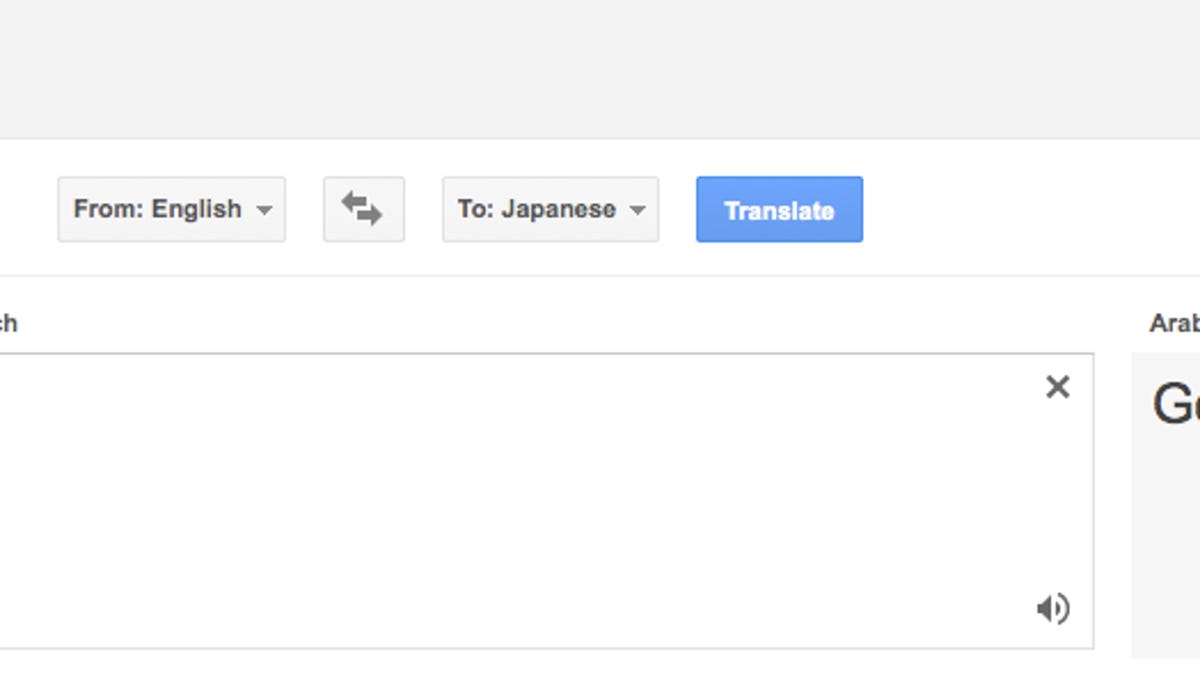Google Translate boasts 64 languages and 200M users
The Web giant's translation service is deciphering more words in one day than all human translators produce in a year.

Ever wanted to know how to turn a phrase in Esperanto, Bengali, Chinese, or some other language? Seems lots of people do, in fact millions.
Google announced today that more than 200 million people actively use Google Translate monthly. Add up all those words and that equals roughly the same amount of text per day as there is written in 1 million books.
"To put it another way: what all the professional human translators in the world produce in a year, our system translates in roughly a single day," Google Translate research scientist Franz Och wrote in a blog post. "By this estimate, most of the translation on the planet is now done by Google Translate."
The translation service launched in 2001 with eight languages that could be translated to and from English. After working on improving speed and the accuracy of its translation machines, Google added more languages. Today, the service can translate a sentence in less than one second and works in 64 different languages, including Icelandic, Swahili, Basque, Azerbaijani, and Welsh.
Och said he believes that the majority of Google Translate users access the service while traveling. According to the company's stats, mobile traffic has quadrupled during the past couple of years and 92 percent of traffic comes from outside the U.S.
Google Translate is available for texting on mobile phones, in Chrome's browser for any Web page, YouTube video captions, and speech-to-speech "conversation mode" on
However, this doesn't mean that translation machines will replace humans. "Of course, for nuanced or mission-critical translations, nothing beats a human translator," Och affirms, "and we believe that as machine translation encourages people to speak their own languages more and carry on more global conversations, translation experts will be more crucial than ever."

